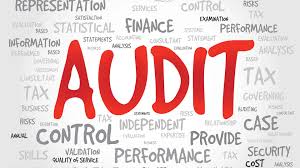
What is Statutory Audit in Company?
Statutory Audit in Company- A statutory audit is a type of external audit that is conducted by a qualified auditor of a Company to verify the financial statements of a company, in order to ensure that they are accurate, complete and comply with the relevant accounting standards, laws, and regulations.
In simple terms, a statutory audit is an independent and objective review of a company’s financial records, systems, and processes to make sure they are reliable and trustworthy.
The purpose of a statutory audit is to provide assurance to the stakeholders of the company, such as investors, creditors, and regulators, that the financial statements are true and fair, and that the company is operating in a legal and ethical manner.
During a statutory audit, the auditor will examine various documents and records such as bank statements, invoices, receipts, and financial statements. They will also assess the company’s internal controls, policies, and procedures to identify any potential weaknesses or areas of risk.
Once the audit is complete, the auditor will issue an audit report, which will include their findings and conclusions. If the financial statements are deemed to be accurate and compliant, the auditor will provide an unqualified opinion. However, if there are any material misstatements or issues that need to be addressed, the auditor may issue a qualified or adverse opinion.

Overall, a statutory audit is a vital process for companies to demonstrate their financial integrity and to provide assurance to stakeholders that their financial statements are trustworthy.
Table of Contents
Process to do Audit of the Company
The process of audit of a company can vary depending on the specific requirements and circumstances of the company. However, in general, the following are the step-by-step process involved in conducting a statutory audit of a company in India:
- Planning: The first step is to plan the audit process, which involves understanding the business operations and risks of the company, identifying the key areas to be audited, and preparing the audit plan. This includes determining the scope of the audit, the timing of the audit, the resources required, and the expected outcomes of the audit.
Example: A statutory auditor planning to audit a manufacturing company would need to understand the nature of the company’s operations, the type of products manufactured, the production processes used, the inventory management system, and the potential risks associated with the business operations.
- Collecting Evidence: The next step is to collect evidence to support the audit findings. This involves gathering and analyzing financial records, transactions, and other relevant documents. The auditor must ensure that the evidence is reliable and relevant to the audit objectives.
Example: A statutory auditor collecting evidence for a manufacturing company would need to examine the financial records, such as balance sheets, profit and loss accounts, cash flow statements, purchase and sales invoices, and other relevant documents such as purchase orders, shipping records, and inventory records.
- Evaluating Internal Controls: The auditor evaluates the internal controls of the company to assess the effectiveness and efficiency of the controls in place. This includes assessing the internal control environment, evaluating the design of the controls, and testing the operating effectiveness of the controls.
Example: A statutory auditor evaluating the internal controls of a manufacturing company would need to assess the company’s policies and procedures for inventory management, the segregation of duties, and the authorization of transactions. They would also need to test the effectiveness of the internal controls by performing physical inventory counts and other audit procedures.
- Reporting Findings: The auditor prepares the audit report based on the findings of the audit. The audit report includes the auditor’s opinion on whether the financial statements are prepared in accordance with the applicable accounting standards and give a true and fair view of the company’s financial position.
Example: A statutory auditor would provide an unqualified opinion if they find that the financial statements are prepared in accordance with the applicable accounting standards and provide a true and fair view of the company’s financial position. However, if there are any material misstatements or issues that need to be addressed, the auditor may issue a qualified or adverse opinion.
- Follow-up: The auditor may also provide recommendations for improvement and follow up with the company to ensure that the recommendations are implemented.
Example: A statutory auditor providing recommendations for a manufacturing company may suggest improvements in the inventory management system, such as the implementation of automated inventory tracking and periodic inventory counts, to minimize the risk of inventory fraud or errors.
In conclusion, the process of audit involves planning, collecting evidence, evaluating internal controls, reporting findings, and follow-up. The audit process is designed to provide assurance to stakeholders that the financial statements are reliable and accurate, and that the company is operating in a legal and ethical manner.

Who can do Statutory Audit for Company?
In India, a statutory audit of a company can only be conducted by a practising Chartered Accountant (CA) who is registered with the Institute of Chartered Accountants of India (ICAI).
The ICAI is a statutory body established under the Chartered Accountants Act, 1949, which regulates the profession of chartered accountancy in India. To become a practising CA, one must complete a rigorous education program and pass the qualifying exams administered by the ICAI.
The CA who conducts the statutory audit must be independent and impartial, and not have any financial or personal interest in the company being audited. This ensures that the audit is objective and unbiased.
For example, if a CA has provided any other services to the company, such as accounting or tax advice, they may not be considered independent and may not be able to conduct the statutory audit.
Moreover, the CA must adhere to the auditing standards and guidelines issued by the ICAI while performing the audit. These standards ensure that the audit is conducted in a systematic and thorough manner and that the audit report provides a true and fair view of the financial statements.
In addition to the above, the Companies Act, 2013 mandates that certain companies must appoint a firm of CAs instead of an individual CA for their statutory audit. For instance, all listed companies, companies having a paid-up share capital of more than Rs. 10 crores, or companies having a turnover of more than Rs. 50 crores are required to appoint a firm of CAs for their statutory audit.
In conclusion, only a practicing CA who is registered with the ICAI and meets the necessary qualifications and criteria can conduct a statutory audit of a company in India.

Who can be appointed as the Internal Auditor of the Company?
In India, internal audit can be conducted by various professionals depending on the nature and size of the company. Some of the professionals who can conduct internal audit in India are:
- Chartered Accountants (CAs): CAs are qualified professionals who are authorized to provide audit and assurance services. They can conduct internal audits for companies and provide valuable insights into the company’s financial health and risk management processes. CAs are often engaged by companies to conduct internal audits due to their specialized knowledge and expertise in the field of accounting and finance.
- Cost Accountants: Cost Accountants are also known as Certified Management Accountants (CMAs). They specialize in providing services related to cost accounting, management accounting, and financial planning. Cost accountants can conduct internal audits to help companies identify areas where cost savings can be made and to improve overall financial performance.
- Company Secretaries (CS): CS are professionals who specialize in providing services related to corporate governance and regulatory compliance. They can conduct internal audits to ensure that the company is complying with all applicable laws, regulations, and internal policies. CSs are often engaged by companies to provide assurance to the management and the board of directors that the company is operating in a legal and ethical manner.
- Internal Audit Firms: There are specialized firms that provide internal audit services to companies. These firms employ professionals with different backgrounds and expertise such as CAs, CMAs, CSs, and other professionals. These firms are often engaged by companies to provide an independent and objective assessment of the company’s internal controls, risk management processes, and compliance with laws and regulations.
For example, a manufacturing company may engage a firm of CAs to conduct an internal audit of their inventory management processes to identify any discrepancies or inefficiencies in the system. Similarly, a financial services company may engage a firm of CSs to conduct an internal audit of their compliance processes to ensure that they are complying with all applicable laws and regulations.
In conclusion, internal audit in India can be conducted by various professionals depending on the nature and size of the company. The choice of the professional will depend on the specific needs and requirements of the company.
Importance of Audit in Company
Audit plays a crucial role in ensuring the reliability and accuracy of financial statements, identifying areas for improvement in internal controls, and providing assurance to stakeholders that the company is operating in a legal and ethical manner. The following table outlines some of the key importance of audit in a company:
| Importance of Audit | Explanation |
|---|---|
| Ensures Accuracy of Financial Statements | Auditing provides an independent and objective assessment of the company’s financial statements, ensuring that the financial statements are reliable, accurate, and prepared in accordance with applicable accounting standards. This helps to build trust and confidence in the company’s financial reporting. |
| Identifies Areas for Improvement in Internal Controls | Auditing evaluates the effectiveness and efficiency of internal controls, identifying weaknesses in the system and recommending improvements to mitigate risks. This helps to improve the overall operational efficiency and effectiveness of the company. |
| Provides Assurance to Stakeholders | Auditing provides assurance to stakeholders, including shareholders, creditors, and investors, that the company is operating in a legal and ethical manner and that the financial statements are reliable and accurate. This helps to build trust and confidence in the company and its management. |
| Facilitates Compliance with Laws and Regulations | Auditing helps to ensure that the company is complying with all applicable laws, regulations, and internal policies. This helps to minimize the risk of legal and regulatory sanctions and reputational damage to the company. |
| Helps in Decision Making | Auditing provides valuable insights into the financial health of the company, helping management to make informed decisions regarding investment, expansion, and other business operations. |
In conclusion, audit plays a critical role in ensuring the accuracy and reliability of financial statements, identifying areas for improvement in internal controls, providing assurance to stakeholders, facilitating compliance with laws and regulations, and helping in decision-making. These benefits highlight the importance of audit in ensuring the long-term sustainability and success of a company.
Duties Performed by Auditor of Company
The duties performed by an auditor of a company can vary depending on the specific requirements of the company and the type of audit being conducted. However, some of the common duties performed by an auditor of a company are as follows:
- Planning and Preparation: The auditor must plan the audit process and prepare the audit program, including determining the audit objectives, scope of the audit, timing, and resources required.
- Gathering and Analyzing Evidence: The auditor must gather and analyze sufficient and relevant evidence to support the audit findings. This includes examining financial records, transactions, and other relevant documents.
- Evaluating Internal Controls: The auditor must evaluate the effectiveness and efficiency of the internal controls in place, assess the internal control environment, evaluate the design of the controls, and test the operating effectiveness of the controls.
- Reporting Findings: The auditor prepares an audit report based on the findings of the audit. The report includes the auditor’s opinion on whether the financial statements are prepared in accordance with the applicable accounting standards and gives a true and fair view of the company’s financial position.
- Providing Recommendations: The auditor may also provide recommendations for improvement based on the audit findings. These recommendations may relate to internal control deficiencies, accounting practices, financial reporting, or other issues.
- Follow-up: The auditor may follow up with the company to ensure that the recommendations are implemented and monitor any changes in the company’s financial position or operations.
- Professional Standards and Ethics: The auditor must adhere to professional standards and ethics, including independence, objectivity, confidentiality, and professional scepticism.
In conclusion, the duties of an auditor of a company involve planning and preparation, gathering and analyzing evidence, evaluating internal controls, reporting findings, providing recommendations, follow-up, and adhering to professional standards and ethics. These duties are critical to ensure the accuracy and reliability of financial statements and to provide assurance to stakeholders that the company is operating in a legal and ethical manner.
References
- https://www.icai.org/post/guidance-notes-on-auditing-aspects
- https://www.icai.org/post.html?post_id=17768

